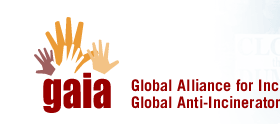
GAIA: Sign the Global Resolution against Waste Burning and for Zero Waste
Sign the resolution below, as part of Don’t Burn Our Future! Global Day of Action Against Waste Burning and for Zero Waste, November 8, 2013

Sign the resolution below, as part of Don’t Burn Our Future! Global Day of Action Against Waste Burning and for Zero Waste, November 8, 2013
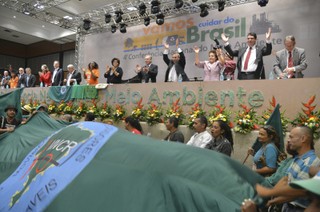
Entre os dias 24 e 27 de outubro de 2013, em Brasília/DF, aconteceu a 4° Conferência Nacional de Meio Ambiente (CNMA), com representação de cerca de 1200 delegados de todo o País. Considerando as etapas municipais, regionais, estaduais, livres e a nacional, em que somadas, teve a participação histórica de mais de 200 mil pessoas, entre elas mais de 40 mil catadores de materiais recicláveis.

GAIA would like to invite our members and allied groups to join our 13th Global Day of Action against Waste Incineration and for Zero Waste Alternatives on November 8, 2013. The 2013 Global Day of Action on Waste and Incineration will be part of the Global Month of Action on Dirty Energy organized by a coalition of international networks. This Month of Action is a united effort to demand the transformation of our energy systems in favor of sustainable and community-based solutions.
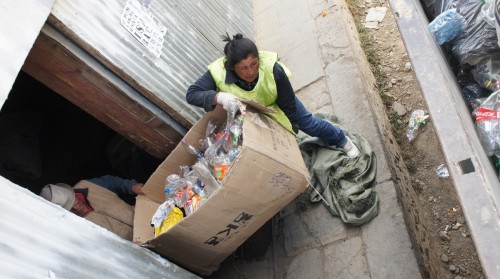
On October 8, the waste pickers’ cooperative Emprendedores Quiaqueños joined the Federación de Cartoneros y Recicladores and presented an action plan in the city of La Quiaca. The actions are being proposed in response to countless promises made by the municipality that have gone unfulfilled, as well as a lack of commitment from public authorities.
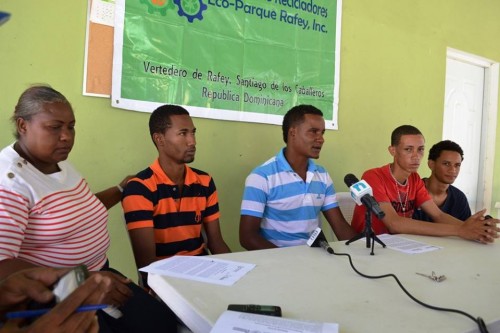
In October, the Association of Waste Pickers of Eco Parque Rafey landfill in the Dominican Republic warned about the dangers of a landfill called the Vertedero Municipal de Santiago de los Caballeros. Because of poor management, the landfill frequently catches on fire.
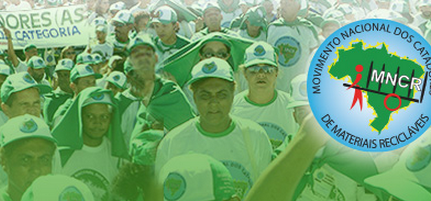
Members of the National Movement of Waste Pickers of Brazil (MNCR) have been pressuring congress members on the Commission for Social Security and the Family to speed up the passage of legislation that would include waste pickers on the list of professionals that benefit from social security.
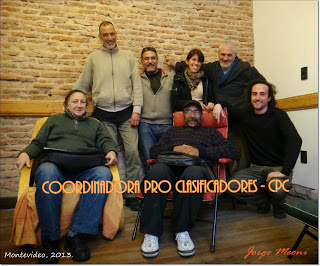
The Montevideo “Waste Law”, initiated by the municipality in 2004 requires companies that produce waste to develop a waste management plan. The city, now focusing on the recycling aspects of this law, wants the waste pickers to formalize into businesses. The law requires that the organizations that win the public bid contract waste pickers and manage their operations, controlling their work hours and and the neighborhoods in which they collect.
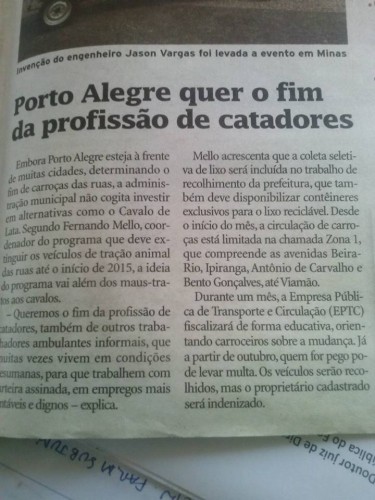
The National Movement of Brazilian Waste Pickers – MNCR/RS, strongly denounces statements made by Fernando Mello, the coordinator of the program that will ban the use of horse-drawn carts by the beginning of 2015. “We want to end informal recycling, as well as other informal livelihoods, that many times operate in inhuman conditions, so that they can work formally and in more lucrative and dignified jobs.”

In this video taken at the Waste and Citizenship Festival in France, Roberto Prates Reis, a representative of the National Movement of Waste Pickers in Brazil (MNCR) talks about the struggle of the “biffins” of Paris to defend their livelihood.
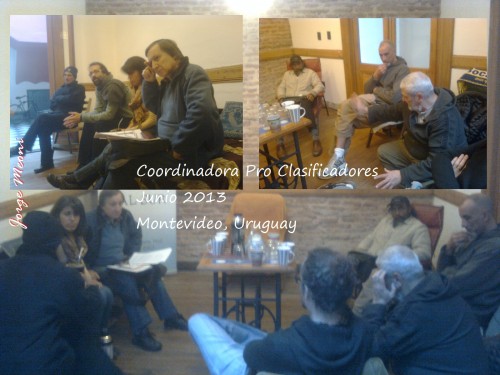

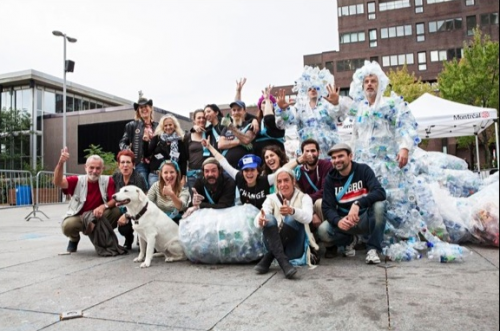
The event “beyond the recycling, the work of waste pickers!”, that took place on last Saturday, September 21, was a resounding success! The Valoristes, a solidarity cooperative, that organized the event, managed to recuperate and divert 24,500 containers from landfills!

In this video taken at the Waste and Citizenship Festival in France, Roberto Prates Reis, National Movement of Waste Pickers (MNCR), talks about the reality of waste pickers (called “biffins”) in France, and compares them to similar struggles in Brazil.

The PRISM project (Poverty Reduction of Informal Waste Workers) recently published three videos about their work with waste pickers in Nepal.
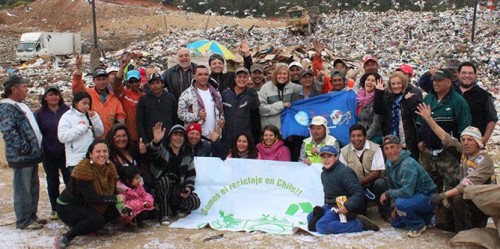
On August 31st, the Latin American Waste Pickers’ Network wrapped up a week of meetings and activities held in Santiago, Chile (Aug. 25-31). The final activity consisted of a visit to informal recyclers of the dumpsite known as Vertedero Los Molles, in Valparaíso.
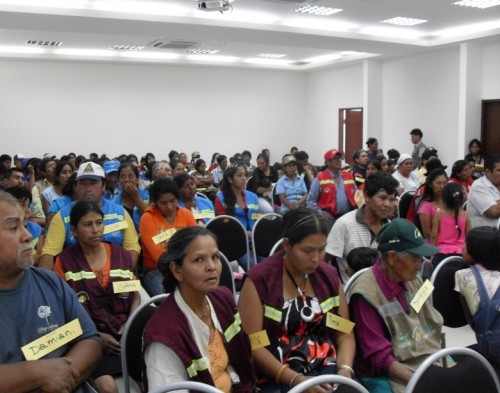
Waste pickers’ associations from seven cities in Bolivia that participated in the second national conference, marched to demand the passage of a law that recognizes them as workers and gives them the right to social security benefits.
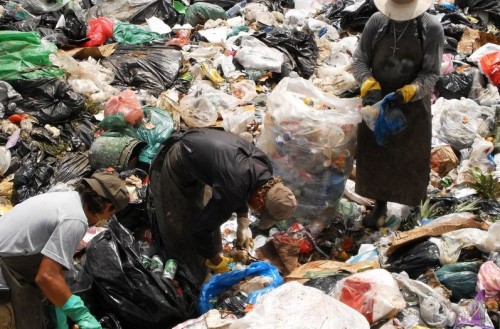
On September 14, Costa Rican waste pickers hosted their First Waste Pickers Conference, in the city of San Jose. More than 100 recicladores from around the country participated, according to the newspaper La Nación. Their stated objective is to dignify the livelihoods of the families that collect recyclables.
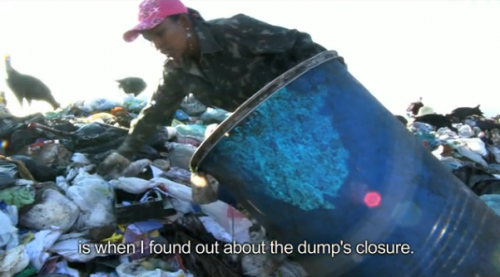
In the first week of September, 246 waste pickers of the Gericinó dumpsite in Bangú, a peripheral neighborhood in the Rio de Janeiro municipality, were facing the possibility of being suddenly out of work. The workers found out that the city, which has been in the process of closing the dumpsite for many months, was going to hand management over to a private company within two weeks time and that the dumpsite would be off limits.
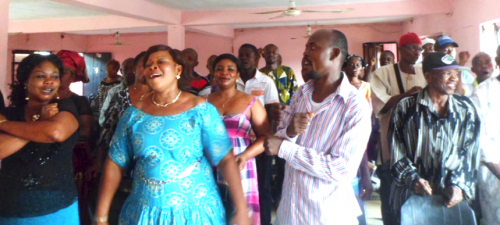
A report from the WIEGO/FIWON organizing project in Nigeria, which is in its final phase, says progress is being made in the seven target cities of the project. Meetings among waste pickers became regular with some centers holding meetings once or twice a month.
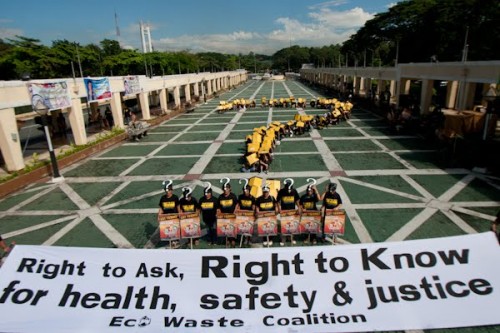
On the occasion of the “Waste Picker Regional Training and Consultation”, held on September 3, 2013 in Quezon City, Philippines, we stand committed and united in mind, voice, and action to attain our dreams and aspirations of a better situation and livelihood, that we may rise above our poverty and ensure a better future for our children.